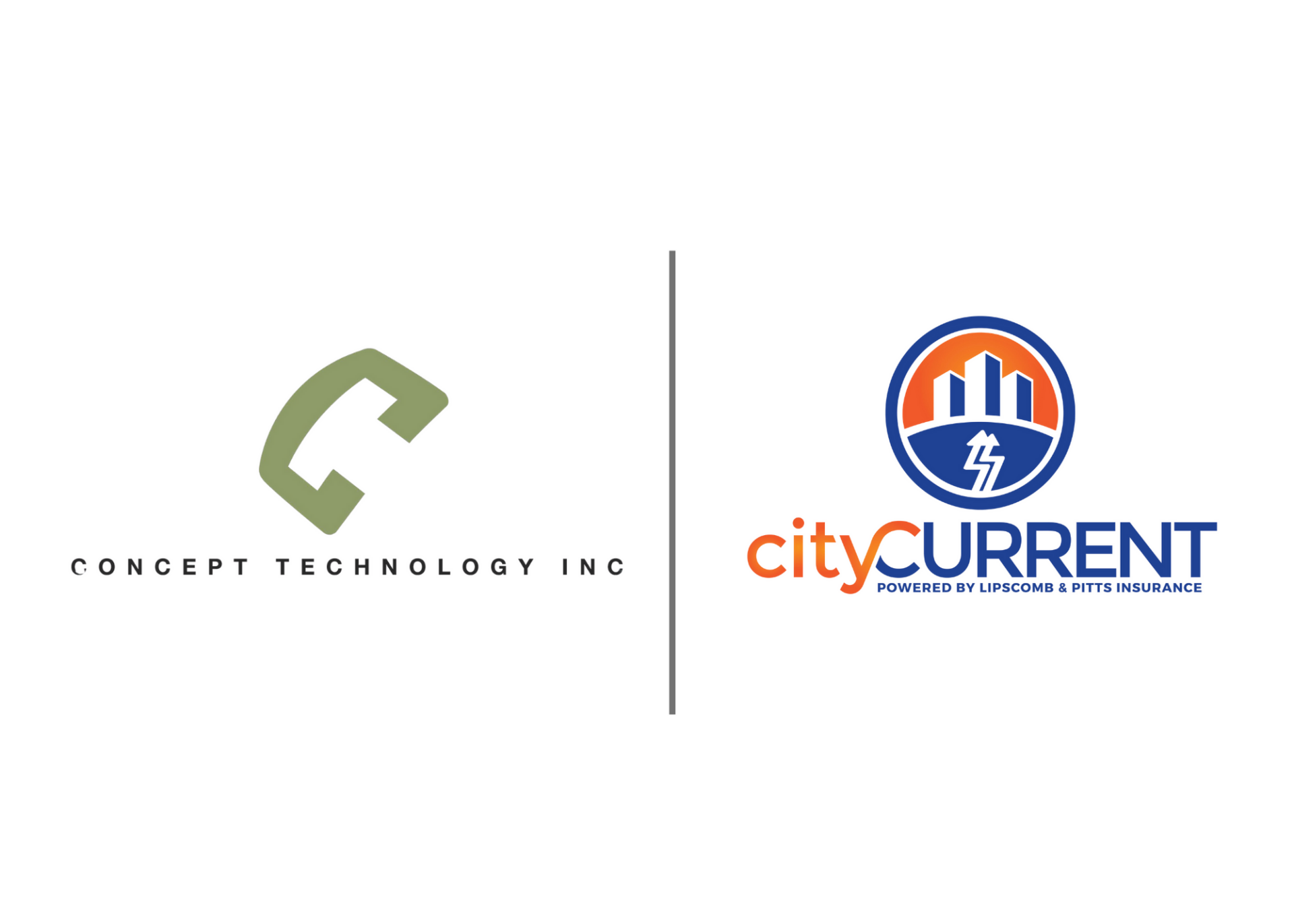
Even in a remote-work world, it’s important to stay connected and share insights with peers and leaders of the larger business community.
Recently, we did just that as James Fields shared with cityCURRENT CEO, Jeremy Park, thoughts and philosophies on powering remote work for ourselves and our clients, retaining company culture, the important role that technology as we navigate through a global pandemic.
Watch the full radio interview here!
Full Transcript:
[00:00:00.240] – Jeremy Park
Before you watch this episode of our City Current radio show, I’d like to invite you to join City Current E-learning, an online personal development platform called Growth Current. I’m Jeremy Park, host of the City Current Radio Show and CEO of City Current Growth. Current is your exclusive ticket to attend virtual events with global thought leaders, national guest speakers and experts who can help you grow personally and professionally. It gives you access to success, secrets, lessons learned, learning modules, so much more being online.
[00:00:45.750] – Jeremy Park
Welcome back to the City Current Radio Show. I’m your host, Jeremy Park. We’re honored to be joined by our next guest. We get to dive into the world of technology. We’re here with James Fields.
[00:00:54.600] – Jeremy Park
He is the founder and CEO of Concept Technology. How are you doing, James?
[00:00:59.340] – James Fields
My gosh, Jeremy, it’s great to see you doing fantastic. Coming to you live from my porch.
[00:01:05.070] – Jeremy Park
Hey, we want to make sure everybody’s safe and healthy. And so, you know, you’re a big part of this is making it easy to work from home. And so, we’ll talk about that. But give us a little background on Concept Technology, because you do work in various industries. Obviously, technology is the big focus. You make it very easy on the managed IT service provider side. But give us some background.
[00:01:25.350] – James Fields
Yeah, sure. You know, it all started in 2003 and I had been kind of peripherally involved with some companies with whom I now compete. I was really sort of underwhelmed at how they took care of their customers. And I figured, man, jeez, I think I could do a better job because I’m going to treat my customers like it was my mom’s company and I’m going to treat my employees like I would want my kids’ employers to treat them.
[00:01:51.000] – James Fields
And even though I had I mean, listen, I had no idea how to actually deliver IT services, but I’m like, I can figure that part out. And so, we were kind of a culture-first company. And, the first year, I was just knocking on doors saying, hey, can I help you all with your computers? And I’m fortunate enough to get enough customers that I could hire a legitimate guy and then another one and companies would try us out and they’d stick with us.
[00:02:18.270] – James Fields
And that’s how we kept growing. And now we’re at 50 something employees and we support, I don’t know, about 6000 Nashville fans here at work. And we’re just excited to keep growing. But just like that first day, you know, it’s still a culture-first company. And I think that’s what makes us so special.
[00:02:37.500] – Jeremy Park
Well, and I love the fact that you talk about in many cases, companies try to use technology to replace people. And you’re like, no, wait a second, people first, let’s use the people to really drive the technology and innovation and then create the efficiencies and all of that using technology. So. to your point, it’s people first leveraging technology.
[00:02:58.290] – James Fields
It is. In fact, it’s hilarious because in IT they refer to human beings as “users.” Right. And you want to talk about a computer-first mindset when you think that this computer has a keyboard, and a mouse, and a monitor, and a user, and a printer, it’s like, wait a second, you’re thinking about this all wrong, man. It’s the human beings. And the computer is just a tool to make them more effective at their job.
[00:03:24.540] – James Fields
And that’s really the approach that we want to bring.
[00:03:27.960] – Jeremy Park
I hadn’t thought about that. Just even the label “users,” to your point, like that’s an interesting label. So, on your end, you know, we talk obviously a lot on this show about the pivot’s everyone is having to make because of covid-19 and the pandemic. But you really had to deal with it first beyond or before with a tornado that hit in Nashville. And so, talk about that move on your end to going virtual with your team and then how that really set the stage for you to be able to help your clients with everything that we’re dealing with, with the pandemic.
[00:03:58.170] – James Fields
Yeah. Jeez, man. The early morning of March 3rd, a tornado goes tearing through Nashville, as everybody knows, and a huge tragedy. And a lot of people suffered deeply. Me and my company were not one of those. And so, as I tell the story, there’s part of it where I’m kind of making light of the situation. But I don’t want to detract from the loss that a lot of people suffered. For us, our building got hit, but it wasn’t destroyed, but it wasn’t enough to where we could occupy the building.
[00:04:31.440] – James Fields
Fortunately, we have a really good IT company, and so we were up and running that same morning fully operational from our homes. I think it was 9 a.m. that we were fully operational. Most of our clients didn’t even notice or didn’t even know until we notified them that we had been hit by a tornado and we’re working from home. And in the most bizarre amount of coincidences, two weeks later, every other company in Nashville was working from home, too, but for a completely unrelated reason.
[00:05:01.920] – James Fields
It enabled us to literally not just exercise our disaster recovery plan but to experience working from home all of a sudden. And so, then when our clients had to do it, we could be a lot more thoughtful and attentive. And it’s interesting because there was a big range of preparedness across our client base. For people that had been more inclined to adopt emerging technologies like, for example, moving to the cloud, it was a much more seamless transition than those that still had on-premise servers and workstations and VPNs and a lot of boring IT stuff.
[00:05:40.150] – James Fields
But we were able to get all of our clients transitioned and it works pretty well. Now, there are some things that don’t work super well. Like I generally have to work outside because I got so many kids that are at school and dogs that are barking. And so, when it’s humid, like today, it’s not as pleasant, but it’s a remarkable thing. And I’ll say this, that our building, the construction on that is not yet complete. And so, the upside is that we don’t have to pay rent until it’s habitable again.
[00:06:13.860] – Jeremy Park
There’s always a bright side. Talk about on your end, some of the major topics in terms of your clients that are dealing with working from home. So, we’ll stay on this thread. But I’m thinking things like security and, you know, the Wi-Fi routers not being secure as being in the office and setting up the home technology and, you know, being able to interface. So, what are some of the major challenges and hurdles or things that you’re seeing with your clients to navigate and help them through?
[00:06:46.330] – James Fields
Yeah, man, there’s so much to unpack here. You and I have discussed previously, the home Internet connection is not quite as robust. If you, like a lot of us, use Comcast, they don’t give you an infinite supply of bandwidth. So, you chew through that bandwidth. It’s also not designed to have four concurrent streaming sessions without interruption. Most people’s wireless infrastructure at their home is also not designed to be a business-grade wireless infrastructure.
[00:07:19.360] – James Fields
And so just the nuts and bolts of the networking is a little bit complicated. And then for companies like us to then have to troubleshoot it when it doesn’t work is a whole other thing because we’re not going into people’s homes. And so, we’re having to do this remotely in strange and unfamiliar environments. The security side is huge. And there’s a wide array of companies where – for every company security is important. For regulated businesses like banks and credit unions and medical practices or people that have any kind of patient health care information, it’s a really big deal. You now have a household of people that theoretically have access to these corporate systems, if somebody leaves their computer logged on. I mean, it could literally be a toddler just banging away on the keyboard. A major security threat that’s been on the rise – and most people that have corporate jobs will have seen this – is when you get an email that looks like it’s from the boss asking you to do something. And a lot of times these criminals and they’ve gotten so smart now, I would never be a criminal, but if I ever was going to be, I would be this kind of criminal because it’s so easy, which is literally just to look through companies, websites and LinkedIn.
[00:08:34.180] – James Fields
And you can just pretend to be the CEO and you can email the CFO and tell them you’ve got an emergency wire transfer for this customer. And it’s a company maybe, that you follow on LinkedIn and you put a logo with Microsoft or some logistics company and the whole thing checks out. And if you don’t have really good procedures in place, then you might get tricked. But being remote, it’s even worse because, you know, if you’re in the office, there’s at least like, “Hey, Bob, why did you send me this email?” And those things don’t happen as organically or, you know, they know that he’s at lunch. And so that’s impossible that you just got the email. But we’re seeing the level of those and the occurrence of those phishing scams is literally going through the roof. It’s scary times.
[00:09:19.840] – Jeremy Park
So talk about how you’re able to help companies with being able to kind of manage that. And I know there’s training that goes into that. Obviously, a lot of protection on your end and just constant monitoring. But talk about how you’re able to kind of fight against that.
[00:09:37.300] – James Fields
Yeah. There are two big things that everybody can do and they’re not expensive, right? You can go down the rabbit hole of like, you know, deep advanced security stuff and the price starts to get really high and it can price itself out of the small business community. But the two things that everybody’s got to do, one is you’ve got to train your people on how to identify these kinds of scams. You’ve got to have the financial and HR policies that basically, whether it’s, you know, you got to get two signatures for a wire transfer or just some rigid system to where one person can’t transfer. I mean, we’ve literally seen a company that paid a four hundred-thousand-dollar invoice to a fake company. And that money’s gone like it’s gone like they paid it to a wrong routing and checking number and they can’t get it back. And so, you can’t have one person make that mistake because that business could be ending.
[00:10:35.940] – James Fields
And then the most important thing, which somehow people still resist is using multifactor authentication or two-factor authentication. And for those of you that don’t know, that’s where if you log in to your email account, you’re Microsoft 365 account, your G-suite account, especially from a new browser, then you have to also have something on your phone that will enable you to authenticate. So, there’s something that, you know, like your password, and then something that you have, like your cell phone. It’s an extra step. It’s a minor inconvenience. So, a lot of people don’t want to do it. Now, we’ve all agreed, I think, as a society, that you can’t have your email password be “titans.” Right, because we all know that doesn’t work. So, we’ve all accepted that you have to have complex passwords. This is that, right? It’s a pain in the same way that when you come home and you’ve got an armful of groceries, and you’ve got to hit the keypad to turn your alarm off. So, we’ve all agreed that you have an alarm system at your house. It’s a minor lift, but you just have to do it in. Multifactor authentication is no longer some aspirational security measure. It’s now the baseline. It’s locking your front door with a deadbolt when you go on vacation. Like that’s what MFA is now.
[00:11:51.330] – Jeremy Park
Great advice. Carry that forward to what’s got your attention when you look at trends in technology and where things are headed. Obviously, the cloud is the big one to me is, you know, the opportunities that it really opens up for businesses. But what are some of the major trends or major things that have your attention for where we’re headed?
[00:12:10.230] – James Fields
You know, for us, it’s mostly now focused around the Microsoft ecosystem and the Microsoft modern workplace, which Microsoft is amazing in technology. They’re not as great at branding their technology. And so, the names kind of keep shifting. But it’s basically the three sixty-five ecosystem where before you would have physical servers that authenticated your users and hosted your files and maybe have your email server there, and all that stuff now is up in the cloud through SharePoint and Microsoft teams and Outlook Online.
[00:12:50.130] – James Fields
And the rate of development that Microsoft is putting into this is absolutely breathtaking. Back when everything used to be on-prem, they would come out with periodic software releases and upgrades, but they were all sort of evolutionary and not revolutionary. The rate at which they can update this product suite is developing so fast that it’s hard for us to keep up. And that’s all that we do is try to keep up with this. I mean, we never feel like we’ve got our hands on it because as soon as we do, they come up with something new. With Microsoft Teams, which most of our clients use, and that is really replacing so many existing tools. If you’re a business that uses the Microsoft platform and you’re not using teams, then you should like that’s where we go for all of our internal communications, all of our files, all of our calendars. It’s all done in teams. Now, you can also use teams as your telephone system so I can call my buddy’s cell phone through teams. I can receive calls through teams. And that’s turning out to be the hub of that Microsoft 365 ecosystem.
[00:13:58.410] – James Fields
There were people probably maybe around the time that Windows Vista came out and Mac came out with OS 10 when people thought that Microsoft was in decline. And it is the opposite now that they are emerging as the absolute dominant player.
[00:14:14.460] – Jeremy Park
What’s something that you’ve learned over the past few months, going through the pandemic, that you think has made your company stronger, that you think obviously coming out of this, you’re going to be in a better position?
[00:14:28.440] – James Fields
I think I mentioned previously that we’re a culture-first company we’re a people-first company. It’s interesting like I’ll go with a little thing first, but because we didn’t have an opportunity to plan to work remotely, the tornado dictated that we literally told people, “don’t come to work today because you can’t get in.” And so, we didn’t have time to thoughtfully think through, “well, what do our remote workers need to be set up for success to work from home?” And that’s something that I think people need to really lean in on, right? And so, we’ve let our folks come in like take office chairs and stuff from our office or get extra monitors and they’re docking stations and all this because, you know, if you’re huddled over a laptop, that’s going to be a miserable experience. And so, I started this company because I wanted to go to work at the kind of company that I wanted to get up and go to work to every day. And so, I want everyone to wake up and want to go to work at our place every day. And so, we need people to have a reasonable and inviting home-work environment.
[00:15:38.220] – James Fields
One of the things that’s been fascinating is that we now have hired, I don’t know, probably half a dozen people post quarantine that we have never met. And we’ve gone through the entire hiring process and onboarding and training and done all that. And we’ve never actually met them, which is really weird. But it’s caused us to really be so deliberate about our culture and our interaction because like everybody, when you start a new job and you’re unsure and you don’t know what’s what, you’re really wanting to do the best job but you’re a little nervous, but you can always turn to the person next to you and be like, “Hey, man, what should I do here?” But we don’t have that, right? It’s like this guy’s home alone at his kitchen table or in his home office and he doesn’t know what to do.
[00:16:23.040] – James Fields
And so, we’ve really worked hard to build this sort of community where it’s a community of sharing. Even little stuff like right now, we’re just sharing what are your top four albums of all time? And then you name them and why and then you sort of ping somebody else and then it’s their turn to respond. And so, if you’re not considerate about that, you’re going to end up with sort of two cultures. There are the people that used to work together, and then there are the new people that no one’s ever met before. And I think when we all get back together, that could be a little weird.
[00:16:55.980] – Jeremy Park
Well, I love the fact that you’re being intentional about it. And intention to me is such a key part of success. So, wrap up and talk about the different industries and the different clients that you work with. So, in other words, who do you work with and then talk about your contact information and where do we go to get more information?
[00:17:15.570] – James Fields
Yeah, perfect. So, we support a couple hundred local businesses here where we are, their I.T. department. They are all between ten and two hundred employee companies. And what they all have in common is that they all care about IT. They don’t look at it as a necessary evil, but something that they just have to deal with. They look at it as a way to be a competitive advantage in their space. They know that because everybody has to buy computers, and everybody has to have antivirus software and you’ve got to have the stuff. And so, we have clients that want to say, OK, I’ve already made this investment in technology. How do I leverage existing investment to get the best possible performance out of my team? And that’s what our clients have in common. And so, we do business with not-for-profits and entertainment companies and professional services companies and manufacturing, health care, and almost every vertical. But they all care, and they all want to do great work and they want to be the best company that they can be. And we want to empower them to do that.
[00:18:19.410] – Jeremy Park
Absolutely. So, talk about your website, social media, phone number. How do we get in touch with you?
[00:18:24.360] – James Fields
Oh, great. Yeah. Listen, you can just Google ‘Concept Technology Nashville’ or go to www.concepttechnologyinc.com and we’d love to get in touch with you. You can email me at jfields@concepttechnologyinc.com.
[00:18:39.900] – Jeremy Park
Well, James, thank you for all you and your team do – greatly appreciate it. Thank you for coming on the show.
[00:18:44.100] – James Fields
Hey, I appreciate it very much. Thank you.


